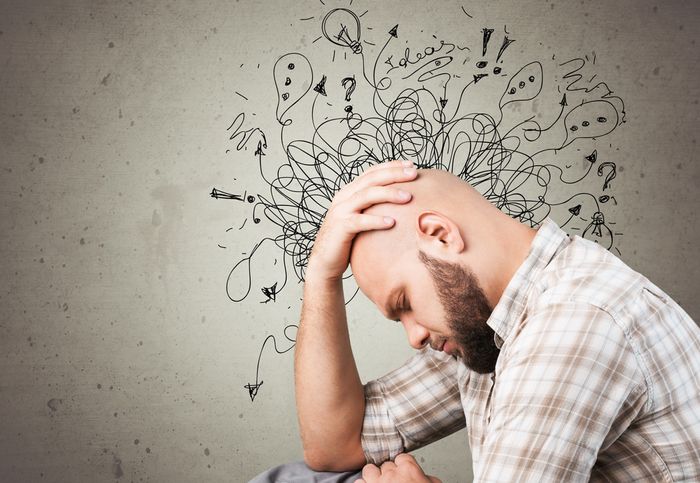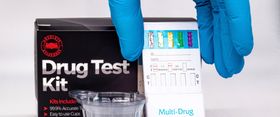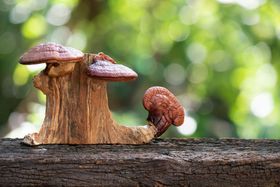CBD for ADHD: Research, Dosage, Use in Children, and More
Updated February 20, 2023.

Attention deficit hyperactivity disorder (ADHD) and attention deficit disorder (ADD) are two very similar conditions with minor differences in their symptoms. Both are characterised by lack of focus and difficulty concentrating, forgetfulness, and other similar symptoms. The main difference is that ADHD patients are generally far more excitable and energetic than ADD patients.
With the growing popularity of cannabis oil and cannabidiol (CBD) oil for many mood-related disorders, individuals are considering using it as a treatment for ADHD and ADD, but is there any merit to this?
This article looks at how CBD oil might treat ADHD, some relevant studies, the safety of CBD use in children, and how to use CBD oil for attention deficit disorders.
Will CBD Oil Help ADD and ADHD?
Currently, there is no scientific evidence that treated ADHD or ADD directly with medical marijuana, CBD oils, or hemp oils. While there are many individuals that will swear by it, and have even claimed that CBD treatment for their ADHD was so effective that they managed to stop their pharmaceuticals entirely, this evidence is purely anecdotal.
While this may be disappointing to some, it definitely isn't a complete catastrophe.
How CBD Oil Might Help ADHD Symptoms
What we do know about CBD is that it seems to exhibit a calming effect on many individuals. One of the adverse reactions reported in many studies on CBD (albeit a rare occurrence) is somnolence (drowsiness or sleepiness). While this might not be ideal for many individuals, those who suffer from a lack of focus from ADHD and ADD could find some benefit.
Research has often drawn links between ADHD and other mood-related disorders like depression and anxiety. That being said, various studies have shown that CBD seems to possess some anxiolytic and antidepressant effects through interactions with specific receptors in the body's endocannabinoid system.
With these factors in mind, it might not be such a wild claim that CBD oil will help with ADHD. Perhaps not for directly treating ADHD with CBD, but potentially as an effective method of alleviating the symptoms.
Is CBD Safe for Kids?
Unfortunately, there isn't much research that looks at the side effects and safety of CBD use in minors directly, nor are there strict laws governing the legality of this. Since all CBD products are derived from the cannabis plant, there is a slight chance of them containing THC, even above the legal limit. Giving THC to minors is illegal, but there aren't any laws that determine whether CBD is legal for kids or not, and so this topic remains a grey area.
Though no research has looked directly at side effects, some studies have noted that the adverse reactions of CBD use in children are similar to adults. The most common side effect is somnolence, though a few others reported a loss of appetite or vomiting. It's important to understand that these side effects are not particularly common or dangerous and that all adverse reactions were eliminated after the subjects stopped taking CBD.
What is a potential cause for concern is that CBD manufacture is not regulated in many parts of the world, which has resulted in fraudulent claims on packaging and products that contain drastically different concentrations of CBD and THC than stated by the label. As such, it is essential that you purchase CBD products from reputable sources that can validate their claims with third-party lab testing and consult your doctor for a better opinion on the risks posed to your children. Only a qualified medical practitioner will be able to tell which specific children can or cannot take CBD oil.
How to Take CBD for ADD and ADHD
The sources claiming its effectiveness often speak of the assistance they found in using medical cannabis and not a refined CBD product. If you're unwilling to purchase the whole plant (or if your local government prohibits it), then you can apply the same principle to a different product.
What this means is utilising a full-spectrum or broad-spectrum (depending on how your body handles THC) product in order to best make use of the other cannabinoids and terpenes in the plant. They work together in something called the entourage effect to enhance the efficacy of each.
As for a method, you'll need to apply some trial and error to figure out what works for you, but here are some pointers:
- CBD Tinctures or edibles for ADHD will give you the longest effect with the easiest application.
- Vaping or smoking the buds will give you the fastest-acting effect with the shortest overall duration.
- Topicals have the lowest bioavailability but could assist with your other chosen method.
Is There a Recommended Dosage of CBD Oil for ADD or ADHD?
Unfortunately, there isn't a recommended dosage of CBD oil for any condition. As a general rule, the optimal dosage is likely to increase depending on the severity of the condition. However, it's far more complicated than that. The correct dosage for two individuals with identical symptoms will not be the same as certain biological factors can influence it, such as age. Children generally need less CBD than adults, but even this isn't set in stone.
The golden rule for finding your optimal CBD dosage is to start low and go slow. This means giving your body time to adapt to the CBD before deciding that you need to increase the dosage. Furthermore, the dose should be increased incrementally, allowing sufficient time to determine the efficacy before increasing it again.
Some Final Advice
You can take solace in the fact that CBD products have an incredibly low risk factor, so you should be alright to begin when you want and start the process of figuring out what works for you. However, you should still talk to your doctor to get their perspective as there could be potential drug-drug interactions between CBD and any medications you currently take.







